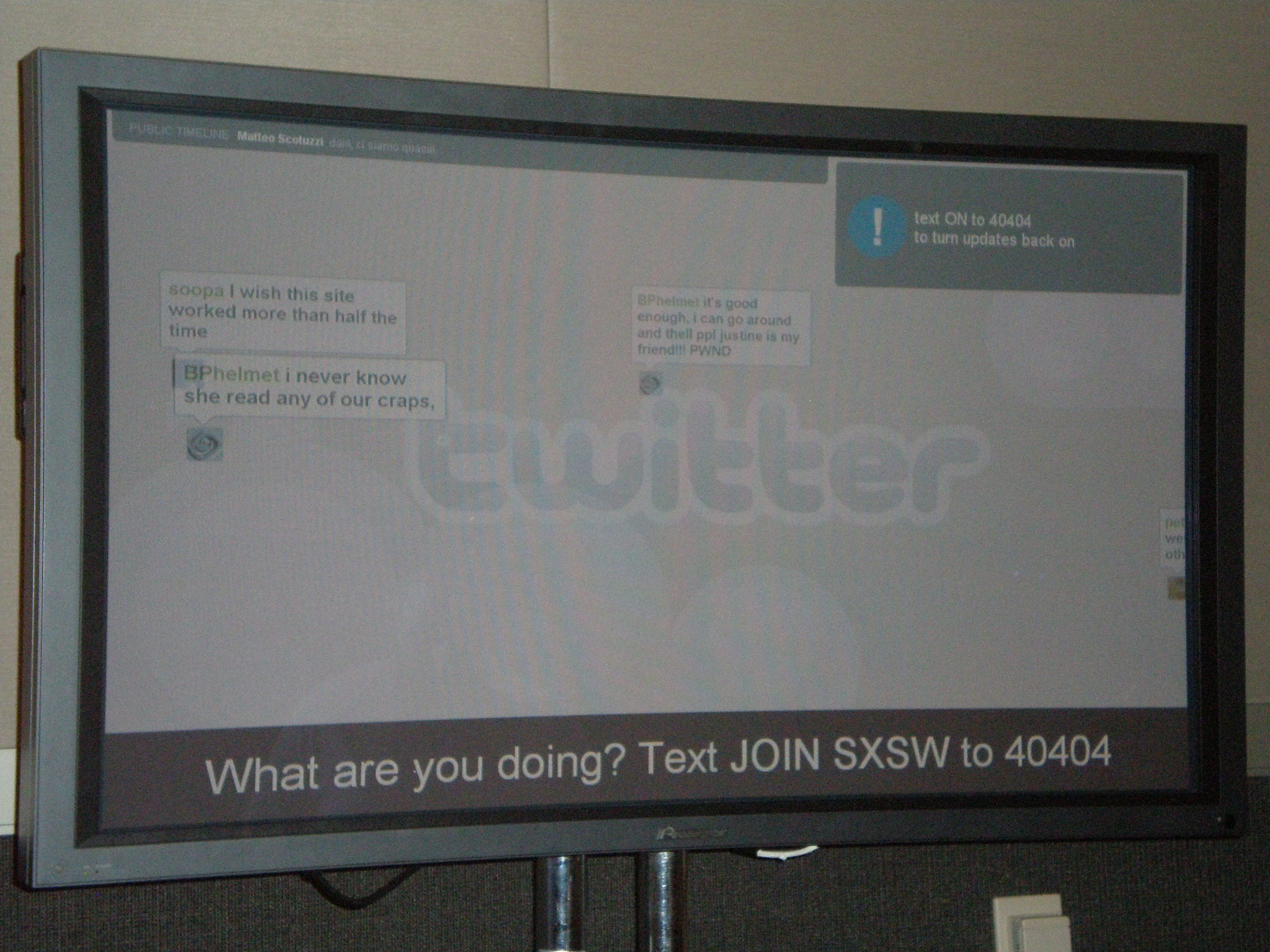A Twittering Hypocrite
4/29/2007 01:26:00 pm I've avoiding signing up for a twitter account. I don’t see the attraction at all. I don’t see the value in it; personally or as a tool I can use with students. I can't imagine anyone being interested that I'm drinking chocolate milk as I write this (Chocolate Caramel Quick, and lots of it, actually).
I've avoiding signing up for a twitter account. I don’t see the attraction at all. I don’t see the value in it; personally or as a tool I can use with students. I can't imagine anyone being interested that I'm drinking chocolate milk as I write this (Chocolate Caramel Quick, and lots of it, actually).
Twitter has spread quickly across the blogosphere and I've been uncomprehending as I've watched this happen. Alan has been writing a lot about twitter. In a recent post I asked him about it and he wrote a great reply. (Thanks for that.)
The tipping point for me was Alan's comment: "you cannot really talk about the game of ed tech as a spectator."
So, now I've got a twitter account. To properly appreciate the twitter experience you need a friends list. So, I started off "befriending" a number of people. Given my recent post about Friends, I guess this makes me a hypocrite.
I'm also thinking that twitter has at least one potential benefit to the classroom. It also provides a means to get students using their cell phones in an educationally meaningful way. Using twittercamp to display people's twits (?) (if that's the right vernacular it's most unfortunate ;-)) can be a way to give voice to the quieter students in class. If I have them working in groups on a problem and at least one student in the group has a cell phone, they can twit their ideas and we can have them displayed for all the class to see on the SmartBoard. (Any type of projection screen should work just as well.) This also aligns well with the the atelier model I've been working hard to bring into my teaching.
I guess I'd need them to all get twitter accounts and teach them how to use their cell phones to twit but I think there's some potential here. Hopefully it's not a long distance call to twit.



5 comments
Hi Darren,
ReplyDeleteTwitter is feeding into a big educational shift in web 2.0 and that is a shift towards openness.
Just like blogs twitter provides us some insights into classroom practice. I can see that Konrad Glogowski spends a lot of time tending to his garden of blogs in the evenings. I can see that Tim Lauer posts to his school blog mostly after school.
This adds a layer of transparency to our practice. And I can see many educators being very uncomfortable about this change!
That's an interesting way of looking at it. I've been thinking more along the lines of "How can I effectively use this with my students?" and "Is there some way to use this in the context of staff development?"
ReplyDeleteI see your point though. Twitter may increase transparency beyond the blog but that is really only from those educators willing to do so. They must have some level of comfort in this. Nonetheless, as you say, it does give some insight into people's work habits and I guess there is something to be learned there ... like I should probably be marking my students Developing Expert Voices projects. ;-)
Darren, Thanks for the post. I looked at Twitter yesterday for the first time and immediately thought that it was ridiculous. But, when you look at it from the perspective of bringing group discussions to the forefront without reconvening class, it makes a lot of sense.
ReplyDeleteI'm still not completely sold on twitter but after just a few days I have to admit, it has something compelling about it.
ReplyDeleteThere's almost a sense of family to twittering. People start their day by saying good morning and end their day by saying goodnight. It's a very personal experience. In many ways it heightens the sense of community and friendship amongst the group of friends I'm connected to. It's ... intimate.
As for using it in the classroom, I broached the possibility with my students of using their cell phones in class to learn ... you should have seen their eyes light up. More on this in an upcoming post.
Darren,
ReplyDeleteI also first approached Twitter with a teaching mindset. I wanted to see the usefulness of it. Perhaps what we should challenge is that way of approaching the new trying to make it fit in what we know. Then we can have a clearer view of the tool.
Not everything we try out on the Internet will be useful for our students. I agree with Alan Levine, we have to experience these things.
Whether we adopt or reject the innovation is one thing. The learning we make on the way will change -perhaps imperceptibly- what we plan for our students. That's what makes it worth the time for me.
Indeed it creates a sense of proximity, perhaps intimacy as you say. I can imagine sociologists interested in bloggers daily habits back in 2007...
Anyway, it brought me to you here now (although you've been in my RSS for quite some time). So, it does make "a difference".
Best,
C